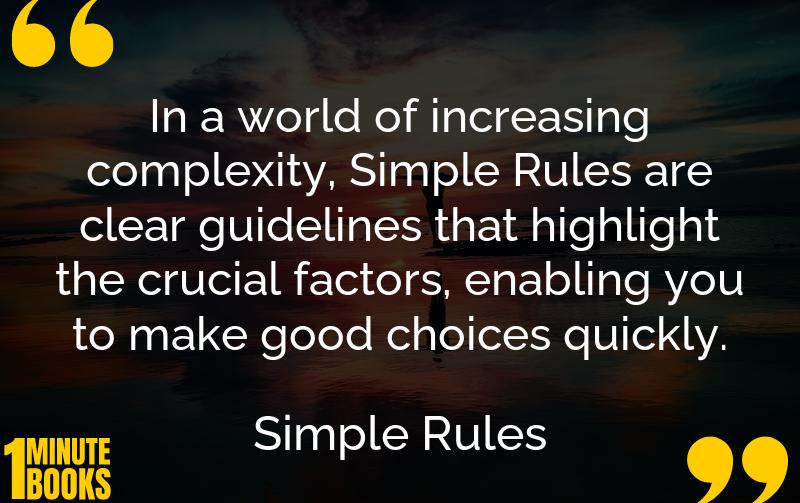
Simple Rules offers clear guidelines to navigate a complex world, fostering creativity, ease in decision-making, and coordination in various aspects of life.
Main Lessons
- Simple Rules simplify decision-making, helping to quickly identify crucial factors.
- Even in complex systems, a few well-chosen rules can lead to successful outcomes.
- Examples such as Michael Pollan’s diet strategy highlight effectiveness in varied areas.
- Flexibility is key; Simple Rules should adapt with new information and circumstances.
- Boundary, prioritizing, and stopping rules guide decisions and manage complexities.
- Coordination rules enhance teamwork, while timing rules optimize task execution.
- Creating Simple Rules involves deriving them from experience, research, and observation.
- Rules like those of Zipcar or Netflix show real-world effectiveness in diverse contexts.
- Developing simple rules involves identifying critical actions and bottlenecks.
- Staying open to change is crucial, ensuring rules don’t become outdated or rigid.
- Simple Rules can foster creativity and problem-solving in both personal and professional scenarios.
- Learning from mistakes helps improve the effectiveness of rules over time.
- The principles laid out can be applied universally, impacting diet, finance, and social norms.








